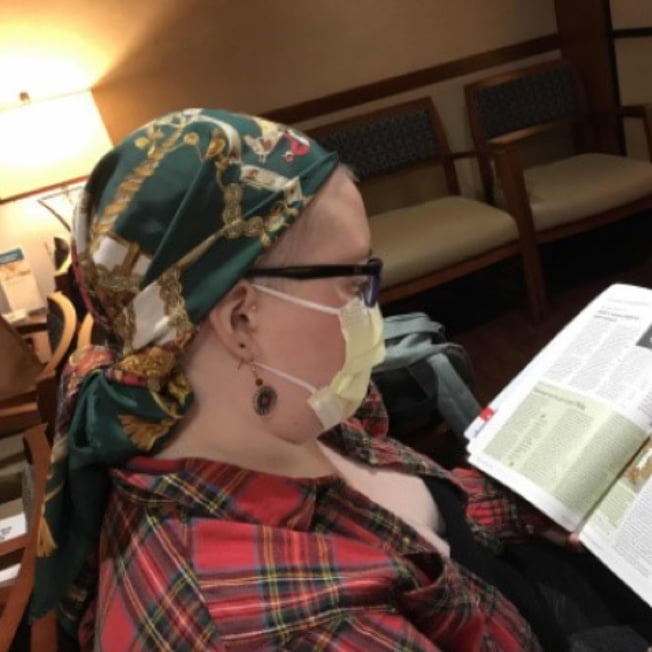
“I had my first allergic reaction [to E. coli-derived asparaginase therapy] 4 months into treatment. It started with an itchy feeling, and it progressed to my throat closing. I knew we needed to find an alternative asparaginase.”
- Caroline (Actual Patient)
Asparaginase as treatment
Asparaginase therapy is a key component of treatment plans for acute lymphoblastic leukemia (ALL) and lymphoblastic lymphoma (LBL)
Asparaginase does the critical job of breaking down asparagine.
Inside living cells
Cells are the building blocks of all living things.
Within each cell are proteins, which help the body function properly.
Proteins are made up of hundreds or thousands of smaller components called amino acids.
One of the amino acids within cells is called asparagine, which helps make proteins and create new cells.
What is asparagine
(uh-speh-ruh-jeen)?
Asparagine is an amino acid used to create important proteins and cells in the body.
Both healthy cells and cancer cells need asparagine to survive. Unlike healthy cells, cancer cells cannot make asparagine themselves so they must absorb it from the circulating blood to continue growing and spreading.
What is asparaginase
(uh-speh-ruh-jen-ace)?
Asparaginase is a naturally occurring enzyme used to help break down asparagine in the blood. Enzymes are proteins that speed up chemical reactions in the body.
Doctors use asparaginase therapy as a key component in ALL and LBL treatment plans because it helps prevent cancer cells from accessing the asparagine they need to survive, causing cancer cells to die.
How asparaginase targets cancer cells
Unlike healthy cells, cancer cells depend on asparagine circulating throughout the blood to survive.
Asparaginase helps break down asparagine in the blood, causing cancer cells to die.
Healthy cell
Cancer cell
Asparagine
Asparaginase
Cell death
Patients with ALL and LBL receive asparaginase therapy that is derived by extracting the asparaginase enzyme from a bacteria called Escherichia coli, or E. coli (ee KOH-lie).
If an allergic reaction (also known as a hypersensitivity reaction) to asparaginase derived from E. coli occurs, the doctor may switch to an asparaginase derived from Erwinia chrysanthemi (er-win-ee-uh krih-san-thuh-my). RYLAZE is an asparaginase therapy derived from Erwinia chrysanthemi.
